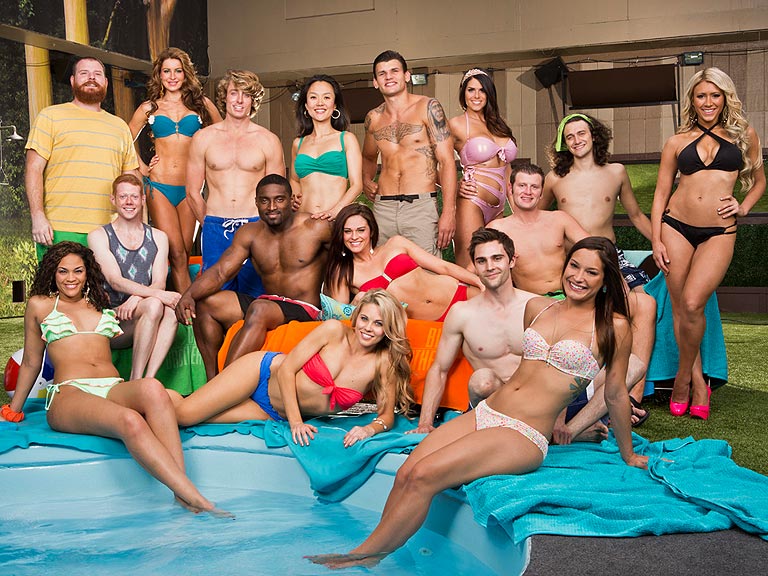‘Big Brother’ 15: an opportunity to discuss discrimination of all forms
By Britt Julious

‘Big Brother’ 15: an opportunity to discuss discrimination of all forms
By Britt Julious
‘Only what can be seen can be considered real. Reality is not based on what you tell me, but what I choose to see and believe and recognize. Everything else holds no place in my world. ’
This mindset appears on the surface to be harmless enough, but when it comes to forms of discrimination and prejudice, the voice of the narrator is far too often considered as unbelievable as the events themselves. As a society, we have been taught to recognize homophobia or racism or sexism in as blatant of terms as possible, and ignore the smaller things.
When I was younger, I had a friend who had a difficult time understanding the microagressions I faced in my seemingly diverse school. According to TAARM (Taking Action Against Racism in the Media), microagressions are, “brief and commonplace daily verbal, behavioral, or environmental indignities, whether intentional or unintentional, that communicate hostile, derogatory, or negative racial slights and insults towards people of color. Those who inflict racial microaggressions are often unaware that they have done anything to harm another person.”
“Are you sure you’re not just over thinking things?” she would ask when, for example, during regulated classroom debates or discussions, my teacher would call me “aggressive,” “angry,” and “confrontational” whenever I disagreed with a fellow classmate.
“What else do I need to prove my point?” I would ask her. “A burning cross?”
It was not until my parents came to see him that he – a seemingly “perfect” far-left liberal – recognized that his words spoken in front of the entire class were problematic, at best, and emotionally crippling at worst.
For the first episode of WBEZ’s Changing Channels podcast, I said that Big Brother was one of my most anticipated shows of the summer. Like every other summer, I looked forward to the drama, manipulations, and lies of the Big Brother house guests. Hurtful comments are a given on a show in which contestants compete in challenges in order to eat good food, control what happens in the house, and avoid losing out on a $500,000 grand prize.
I have been a secret fan of the reality competition since it began and regularly troll online forums like Jokersupdates.com or ONTDBB for the latest information about the house guests. Season 15 began in late June and features a standard cast (beautiful, young, athletic, slightly diverse). What has not been “standard,” however, is the abundance of racist, homophobic, ableist, and sexist comments uttered by the house guests (seen above). In seasons past, such low level attacks were rarely seen (at least on the CBS broadcast) and if they occurred, they were usually only said by one or two house guests at most.
This season has included offensive comments from numerous house guests, like Aaryn who said, when Helen, a Korean-American contestant was crying, that she should “shut up, go make some rice.” Or Spencer, who has referred to Andy, a gay contestant (and local Chicagoan) as a f— and women in the house as c---s. Additional comments from four other contestants (Ginamarie, Jeremy, Kaitlin, and Amanda) have sullied the mood of the house.
The comments have sparked outrage among the public. A petition to remove the most problematic house guest was created and both Aaryn and Ginamarie have been fired or dropped from their jobs outside of the house.
But similar to the Paula Deen fiasco, the public outrage reflects the ways in which we dissect offensive behavior: go big or go home.
We obviously should be talking about the problems with such statements. Although the term microagression is typically applied toward racially or ethnically-charged incidents, the act in itself can be applied to other marginalized populations. It’s disappointing to think that a greater public outcry does not occur when smaller acts of racism or homophobia or sexism or ableism occur on television.
This diminishes the impact of incidences such as microaggressions. It pretends that racism or sexism or homophobia or ableism only exist when they play into our mainstream ideas of what racism or sexism or homophobia actually are. There is no racism unless the n-word is dropped. There is no sexism unless it is in the law to discriminate based on gender. There is no homophobia unless it is coupled with violence. Essentially, there is no discrimination until those outside of the marginalized group “recognize” it as so.
The Big Brother controversy provides an ample opportunity for more media outlets to not only report on the nastiness and the the outrage, but to also spark further discussion on how these statements are not just “flukes” of the house.
In a recent interview, newly evicted house guest Jeremy claimed that, “I’m not racist, sexist, or homophobic” despite the fact that he regularly called the women in the house “bitches.” If the house guests can’t even recognize it when they do it, how can we expect people in other situations to recognize it when they witness it?
In the media, we can’t just say, “this is bad.” We must also say, “this is an example of the way some people think,” and ask, “What can we do to help end this?”
In order to better eradicate racism, homophobia, ableism, and sexism, we must actively recognize all forms of them, from the brief and commonplace forms of “hostile, derogatory, or negative slights and insults,” to the aggressive and confrontational interactions we read as offensive. And more importantly, we must also listen to and trust those who report when such aggressions – of all shapes and sizes – occur. Willful ignorance is no longer acceptable. In truth, it has never been okay.
Britt Julious writes about culture in and outside of Chicago. Follow Britt’s essays for WBEZ’s Tumblr or on Twitter @britticisms.
